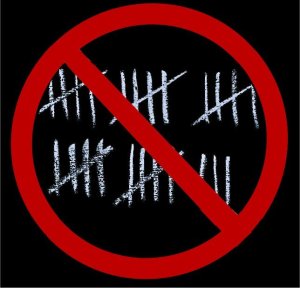“Kindness is an inner desire that makes us want to do good things even if we do not get anything in return. It is the joy of our life to do them. When we do good things from this inner desire, there is kindness in everything we think, say, want and do.” (Emanuel Swedenborg)

Snohomish Shoe Tree
A few years ago, seated around a luncheon table at a business meeting, I tuned into a conversation among my table-mates. A woman whom I knew only barely was describing with unconcealed pride the electronic filing system she had created some years before to track Christmas cards.
She described an elaborate program which maintained both a database of names and addresses, and a spreadsheet: “Everyone on my Christmas card list is in there, and when I get cards, I note in my spreadsheet having received them. I can even indicate whether they merely signed the card, whether it was a holiday letter, or whether they included a personal note. After the holidays, I review the list and remove anyone who didn’t send a card, so next year they won’t get one from me.”
I remember thinking at the time that this puts my own obsessive-compulsive tendencies into manageable perspective. I also remember thinking I was glad I was nothing more than a nodding acquaintance with this woman—I didn’t like the notion of being tracked on her spreadsheet. Actually, since I don’t send Christmas cards, I wouldn’t ever have made the cut to begin with.
I’ve thought about that conversation occasionally and realized what I am most uncomfortable with is the notion of keeping score.
Anyone who follows sports knows keeping score is essential. Guys don’t get paid many millions of dollars for romping aimlessly around on the field with other millionaires. They get paid for competing fiercely, and they get paid more for winning.
Likewise, Scrabble, cribbage and dominoes probably aren’t as enjoyable if we agree before playing that we’re not going to keep score. It’s good to have a goal, and healthy competition can make a game more fun.
But relationships are not competitions—nobody wins unless everybody wins.
At the heart of kindness is the idea that we act kindly not for any reward but for the joy it gives us, and out of the knowledge that it is the expression of our highest and best self. If we withhold our kindness until someone proves worthy, or until they meet some standard we have arbitrarily set, aren’t we being pretty small?
I suppose we all keep score to some degree. In a couple, one partner may wash the dishes while the other does the laundry. In a friendship, we each do what we are best able to do and hope it all balances out. The danger comes when one or both of the parties sets up that spreadsheet in their head (or worse, on their computer!).
Nobody wants to be taken advantage of and friendship is supposed to be a two-way street, but relationships are complex things. They can’t be broken down into “I called him last; it’s his turn to call me,” or “We entertained at our house last time; it’s their turn to have us over.” We never know what’s going on in other people’s lives that may make it difficult for them to reciprocate. As with so many things, a kind interpretation invites us to give the benefit of the doubt.
If a relationship is so one-sided that one party does all the giving and the other does all the taking, it’s absolutely reasonable to ask if this really is a relationship, and if it brings joy or satisfaction. And it’s absolutely okay to decide this is no longer working and sever the connection. We’ve talked about it before: being kind doesn’t mean one is a pushover or an easy target. Kindness is a strength, not a weakness.
Has keeping score ever really made anyone feel better? As soon as we start keeping score in our relationships, joy vanishes. Friendships become obligations, we’re always checking to see who’s ahead or whose turn it is to pick up the tab.
When we do something for someone that should be enough. We give without expectation of receiving something in return. No strings attached. We need to let go of the internal ledger on which we record “that’s one for me, zero for her.”
I’m finding as I get older, I’m drawn to lightening my load—getting rid of the stuff that crowds my life (this is difficult, as I believe members of my family carry a hoarder gene). I want to lighten the load I carry in my head, too: let go of thoughts that don’t bring joy, let go of tallies and ledgers, and concerns about whose turn it is. Magically, that also frees my head of resentment, grudges, and disappointment.
If we’re accustomed to keeping score in our relationships—whether it’s with our spouse, close friends, work colleagues, or those marginal people on our Christmas card list, how do we alter that habit of mentally reckoning every interaction we have? Like any habit, it’s probably hard to break, but I’m guessing that if we keep our eyes on the real prize—peace of mind, happiness, and the joy that comes with kindness—we’ll gradually do less scorekeeping and find that we’re spending more time counting our blessings.
“We cannot tell the precise moment when friendship is formed. As in filling a vessel drop by drop, there is at last a drop which makes it run over; so in a series of kindnesses there is at last one which makes the heart run over.” (Ray Bradbury)
 Previous posts explored two big barriers to kindness, time and fear. Let’s look at a few other obstacles that get in the way:
Previous posts explored two big barriers to kindness, time and fear. Let’s look at a few other obstacles that get in the way:


